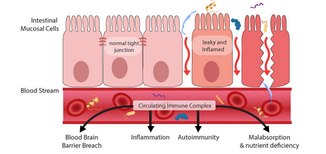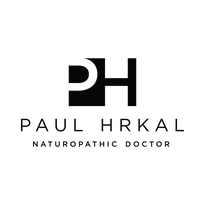 Many of us have heard of the term "leaky gut" syndrome in before. If you haven't you should know about it because it most likely an underlying factor contributing to your health issues. What is leaky gut? The term actually describes pretty much what it is; the lining of your intestines is permeable or "leaky" to substances found in your gut. While this may not seem like a big deal since we would think absorbing things is a good thing but increased intestinal permeability (leaky gut) has been linked to a long list of health conditions. This includes autoimmune diseases (rheumatoid arthritis, skin conditions, multiple sclerosis etc.), cancer, autism, asthma, IBS and inflammatory bowel disease. Why is leaky gut a problem? When the integrity of the intestinal wall is compromised, foreign and allergenic molecules can easily pass from the gut into the area surrounding our intestines. This challenges our immune system, which in turn produces an immune/inflammatory response that is capable of targeting any organ or tissue. The research is clear in showing that a leaky intestinal barrier disrupts the ability of your immune systems to function especially when is comes to tolerating our own cells (autoimmunity). This makes sense since most of our immune system is located right behind our intestinal wall. It acts as our first line of defence, sorting through all the good and bad things that we may be eating. What causes leaky gut? A number of traumatic events such as surgery, organ failure and brain injury have been shown to cause increased permeability. As mentioned above, a number of conditions and diseases have been associated with impaired intestinal permeability but its not totally clear if they are caused by or contribute to leaky gut. I suspect a little bit of both is most correct answer. We do know that deficiencies of essential fatty acids and minerals such as zinc promote leaky gut. Food allergies are another key contributor. Inflammatory and allergenic molecules such as the protein gliadin (similar to gluten) found in wheat, can damage our intestinal wall. One of the most important factors in maintaining a healthy gut is our good bacteria (probiotics). Did you know we have more bacteria in our gut then cells in our body? The problem is that they are constantly being damaged and thrown out of balance. Repeated and chronic use of antibiotics can drastically alter our gut bacteria. Antibiotics often kill the good strains while allowing the harmful strains to flourish since the good guys keep the bad guys in check. Pesticides found on our foods and in our environment also can damage the good bugs in our gut. What can we do about leaky gut? 1) Avoid repeated use of antibiotics and supplement with a high dose probiotic if you ever have to use them. Fermented foods such as sauerkraut and kimchi are also a great source of good probiotics. 2) Avoid pesticides: Eat organic fruits and veggies and antibiotic free meat products 3) Identify food allergens: this is highly individual so getting a blood test to see what you are sensitive to is often the simplest way to avoid foods that may be promoting intestinal inflammation and damage. A naturopathic doctor can help you with this process. 4) Replace nutrient deficiencies: trace minerals such as zinc and omega 3 fatty acids found in flax, chia, hemp or fish oils are very important for optimal gut healing and function. 5) Get more good bacteria: supplement with a multi-strain, high dose probiotic formula. Our gut bacteria are always under assault so keep your gut lining tight by maintaining optimal levels. 6) Supplement with extra antioxidants such as quercetin which is naturally found in onions and fruit. Also include the amino acid glutamine which is a key fuel source for intestinal cells. References Groschwitz KR, Hogan SP. Intestinal barrier function: molecular regulation and disease pathogenesis. J Allergy Clin Immunol. 2009; 124:320; quiz 21-22.
1 Comment
|
Welcome To My Blog
My goal is to post thought-provoking and informative articles so you can learn and apply the latest news from the world of natural health. Feel free to post comments and start a conversation. Stay tuned to my twitter and facebook feeds for the latest posts.
Archives
December 2015
|

 RSS Feed
RSS Feed

